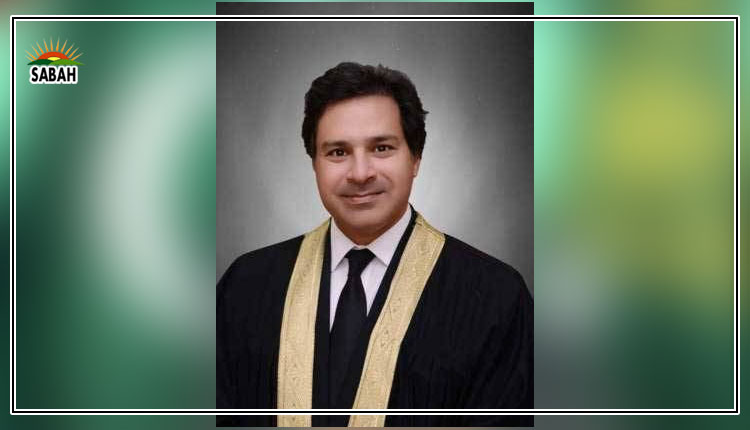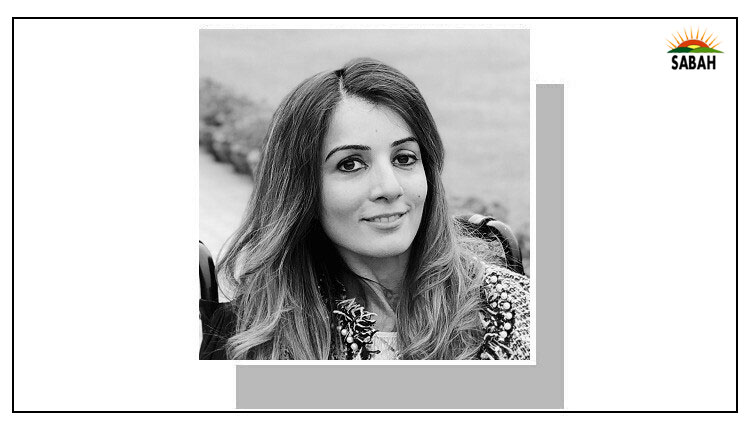Right to access……..Sana Khurshid
AFTER years of litigation, redrafts and deliberations with the relevant stakeholders and bureaucracy, Punjab finally enacted the Empowerment of Persons with Disabilities Act in December 2022.
This did not come easy, though. In 2017, my friend (advocate Ali Chughtai) and I reunited at a well-known eatery in Lahore. The experience would have been great, but for the fact that I just about avoided falling down the stairs that led up to the restaurant.
Multiple people lifting a quadriplegic wheelchair user in her heavy automated chair up the stairs was not the answer.
I was demanding my basic right of accessing buildings safely. We tried to coordinate with the Lahore Development Authority but they did not take us seriously at that time. We were constrained to file a petition before the Lahore High Court in 2018, merely seeking the judges help in ensuring safe access for wheelchair users.
Shut up and pose on your wheelchair? No thank you.
The petition, unfortunately, accomplished little, and the matter ended up with generic directions, without any tangible results. I was on the verge of giving up. Acting in a cynical and sluggish bureaucratic manner, the system had effectively deprived me of the right that I was demanding on behalf of a marginalised community. It is all too familiar a tale. I even wrote a piece lamenting how I was now, along with other wheelchair users, at the mercy of the development authorities who had yet to evolve a conscience. In my mind, I knew that it would never happen.
I felt that my activism was mere optics it appealed to others so long as they were not forced to step out of their comfort zones. Morbidly, it reminded me of an American news anchor ridiculing an African-American basketball star for civil rights advocacy, telling him to shut up and dribble. I was effectively told to shut up and pose in my wheelchair.
I did not shut up though. Ali and I lodged a high court petition in May 2021, seeking a more comprehensive enforcement of disability rights. This time, the matter was fixed before a judge who not only had a conscience, but was willing to do something about the issue the honourable Justice Jawad Hasan.
His Lordship was appalled at my plight, and immediately summoned the development authorities to submit a compliance report of their accessibility regulations. They immediately formed committees to overhaul the public accessibility of people with disabilities (PWDs) within Lahore, and we started seeing tangible change right away.
Lawyer Isaam Bin Haris (appointed as the courts counsel in this matter) poignantly pointed out that Punjab not only needed to address accessibility, but all areas of lives of PWDs. Over the next six months, under the honourable justices directions, we coordinated with the Social Welfare & Baitul Maal Department in developing a comprehensive law to formulate unprecedented PWD rights.
But despite the draft bill being presented before parliament, and the honourable justices judgement regarding the same (PLD 2022 Lahore 346, titled Sana Khursheed vs Government of Punjab), the bill remained in limbo for several months.
Thankfully, due to the Judicial Activism Panels filing of a contempt petition, led by Supreme Court advocate Azhar Siddique, the Disability Act became a reality, and today it is the law of the land.
The Act accommodates PWDs in unprecedented capacities, including: (1) meaningful accessibility to public buildings; (2) inclusive quotas in public and private employment; (3) meaningful accessibility and inclusion in mainstream education (as opposed to separate but equal education); (4) screening of children for certain disabilities in schools so that they are diagnosed in a timely manner to prevent future disability; and (5) an expansive definition of disabilities to cover nuanced disabilities (for example, multiple sclerosis and dyslexia).
Usually, while the state makes great legislation, execution becomes problematic. Under this Act, we have empowered a single council to carry out the provisions of the Act. A seminal 2018 child care commission report authored by Dr Parvez Hassan was instrumental in the formulation of the Act.
My barometer for change previously always had been the formulation of an actual law that covers the entire province. The barometer for change has to evolve. My litmus test for change is now this: the day that you see a person with a disability in a classroom, at your place of employment, or in a public space, without you noticing it as a novelty, will be the day that I can sleep better at night.
Till then, I wont shut up. In fact, none of us should. Now, it is no longer an abstract right. It is the actual law. And we will continue to soldier on towards the goal.
The writer is a lawyer, an activist for equal rights for PWDs and road safety ambassador for Total Parco.
Courtesy Dawn, March 28th, 2023












